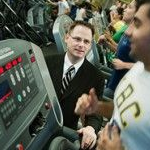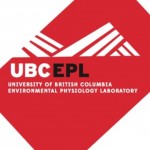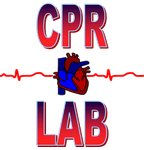The Systems Biology, Exercise and Health cluster explores the roles of physical activity and fitness on physiological systems and underlying cellular and metabolic mechanisms. Our laboratories and scholars examine how physiologically and psychologically adverse environments, as well as physical injuries, impact the relationships between physical activity and fitness with biological systems. We use discovery based science with a wide range of methodologies, from laboratory studies and interventions in humans to highly controlled research studies in rodents.
Research Labs
 Allan McGavin Exercise Physiology Laboratory
Allan McGavin Exercise Physiology Laboratory
Professor: Don McKenzie (Retired)
Dr. McKenzie's research program was divided between respiratory exercise physiology in healthy, well-trained athletes under normoxic and hypoxic conditions and clinical research in patients with chronic diseases. The lab continues to study the mechanisms responsible for the development of hypoxemia during exercise and with exposure to altitude, and also evaluates and attempts to influence functional outcomes in pediatric and adult patients with cancer, following organ transplantation, and with lung and muscle diseases.
![]() Centre for Hip Health and Mobility
Centre for Hip Health and Mobility
Professor: Karim Khan
The Centre for Hip Health and Mobility (CHHM) is a University of British Columbia Senate-approved organization, affiliated with the Vancouver Coastal Health Authority. The research centre improves the lives of Canadians by decreasing the burden of arthritis and fall-related fractures. Our research focus on prevention, detection, and improved treatment of bone and joint diseases so that Canadians can enjoy the freedom that comes with mobility.
 Cognitive and Motor Learning (LEARN) Laboratory
Cognitive and Motor Learning (LEARN) Laboratory
Professor: Shannon Bredin
The Cognitive and Motor Learning (LEARN) Laboratory: the purpose of the LEARN Laboratory is to examine factors that influence human motor development, learning, and performance, with a specific focus on factors related to cognition, functional activities of healthy living, and the development of knowledge across the lifespan. The overall goal of this research is to develop evidence-based tools, strategies, and standards for the development of healthy physical behaviour and expert performance across the lifespan. The LEARN Laboratory is a member of the Physical Activity and Chronic Disease Prevention Unit.
 Environmental Physiology Laboratory
Environmental Physiology Laboratory
Professor: Michael Koehle
The Environmental Physiology Laboratory is a new research facility at the University of British Columbia, affiliated with the School of Kinesiology, and the Division of Sports Medicine, in the Department of Family Practice at the University of British Columbia. Our mandate is research, education and clinical service in the areas of environmental physiology, exercise physiology, sports medicine and altitude medicine.
Fitness, Aging, & Stress (FAST) Lab
Professor: Eli Puterman

A quarter of Canadians report their lives to be quite or extremely stressful. Stress prevents people from engaging in physical activity and places them at increasing risk for chronic disease and early mortality via degradation of immune system function, alteration of protein synthesis through epigenetic pathways, and wearing down of biological and psychological stress pathways to disease. The vision for my research program is to understand how physical activity can mitigate these biological and psychological antecedents of disease to improve the health of Canadians and prevent disease development.
My research marries novel scientific discoveries and current state of the art technologies from adversity research, molecular biology, and exercise science to maximize our knowledge about physical activity as resiliency for optimal health. At present, our current understanding of habitual physical activity as resiliency to adversity is limited to observational findings. Intervention trials supplemented with laboratory-based stress manipulations and ambulatory psychological and biological assessments will broaden and deepen our understanding of the benefits of physical activity. The long-term goal is to develop an intervention strategy that combines digital health technologies and brief contact therapy to increase retention of participants and maintenance of habitual physical activity. By focusing on health promotion in high adversity communities, my research will help to reduce the burden on our health care system.
Health and Integrative Physiology (HIP) Laboratory
Professor: Bill Sheel
The focus of the Health and Integrative Physiology (HIP) laboratory is on the interactions between the respiratory and cardiovascular systems. Work in our lab is directed at understanding the physiological basis and importance of cardio-respiratory interactions in different conditions such as exercise, disease, and hypoxia. We also perform studies in patient groups to further understand the potential therapeutic effects of exercise and physical activity.
Human Locomotion Research Laboratory
Professor: Tania Lam
The overall goal of the research in our lab is to advance our understanding of the neural control of human walking and the mechanisms involved in adapting walking to environmental demands. This basic understanding of the human locomotor system will, in turn, inform our efforts in the development and advancement of gait rehabilitation interventions for people who had a neurological injury.
 Physical Activity Promotion and Chronic Disease Prevention Unit
Physical Activity Promotion and Chronic Disease Prevention Unit
Professor: Darren Warburton
This laboratory evaluates the effects of improvements in cardiovascular function on the health status and Quality of Life of children, adolescents, adults, the elderly and patients with chronic disease and/or disability (including individuals with heart disease, organ transplantation, and spinal cord injury). We also specialize in the evaluation and training of high performance able-bodied and disabled athletes.